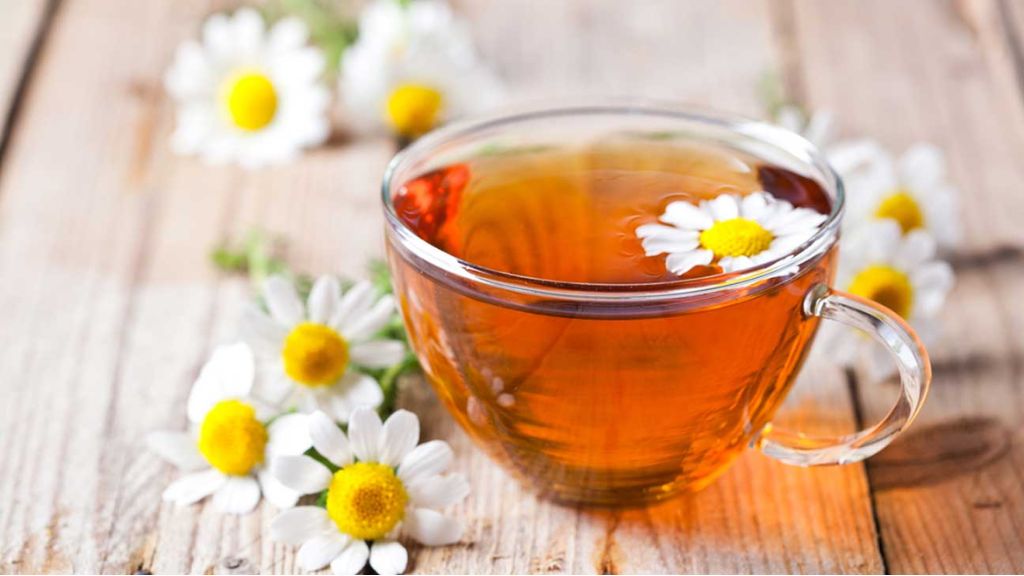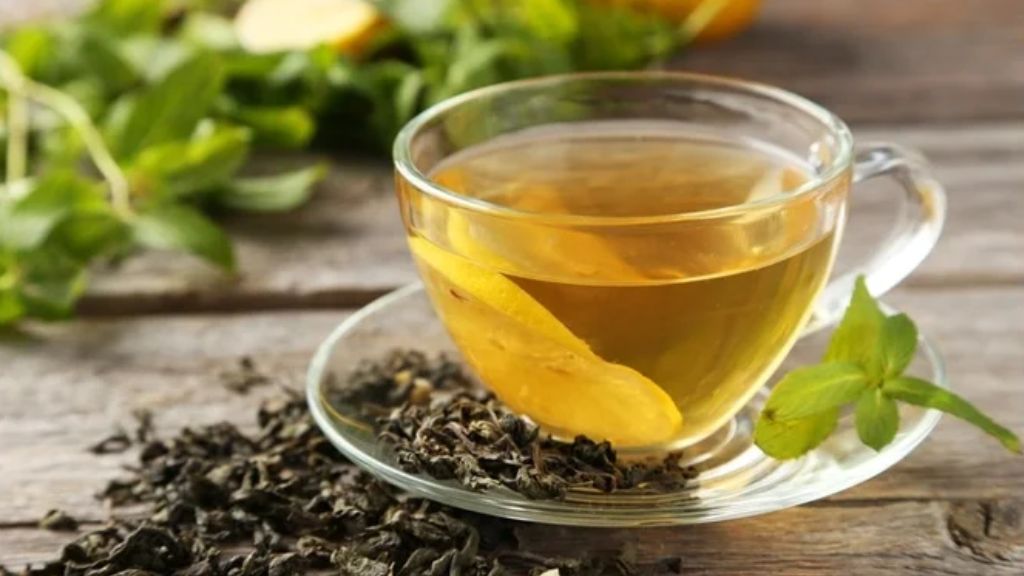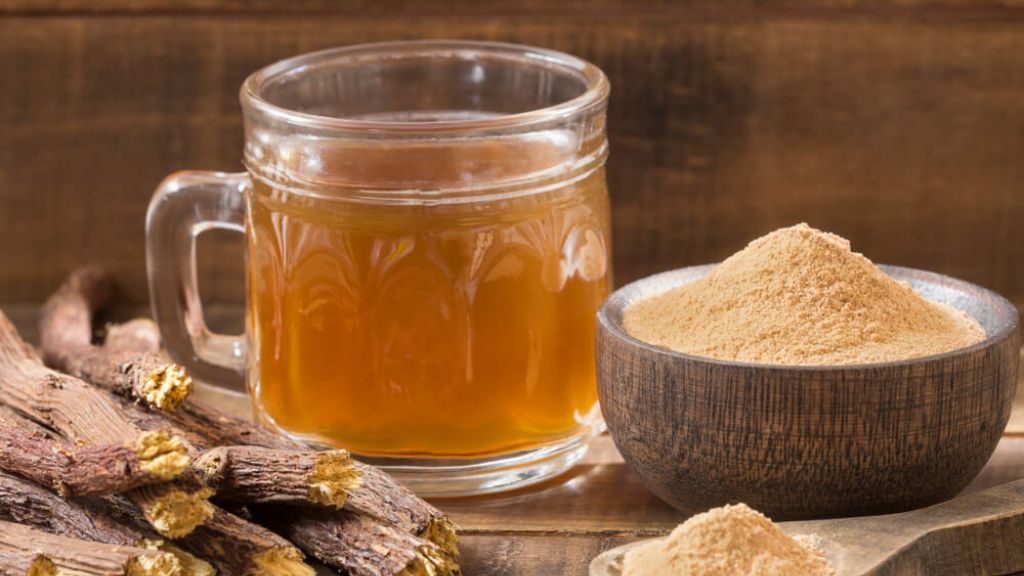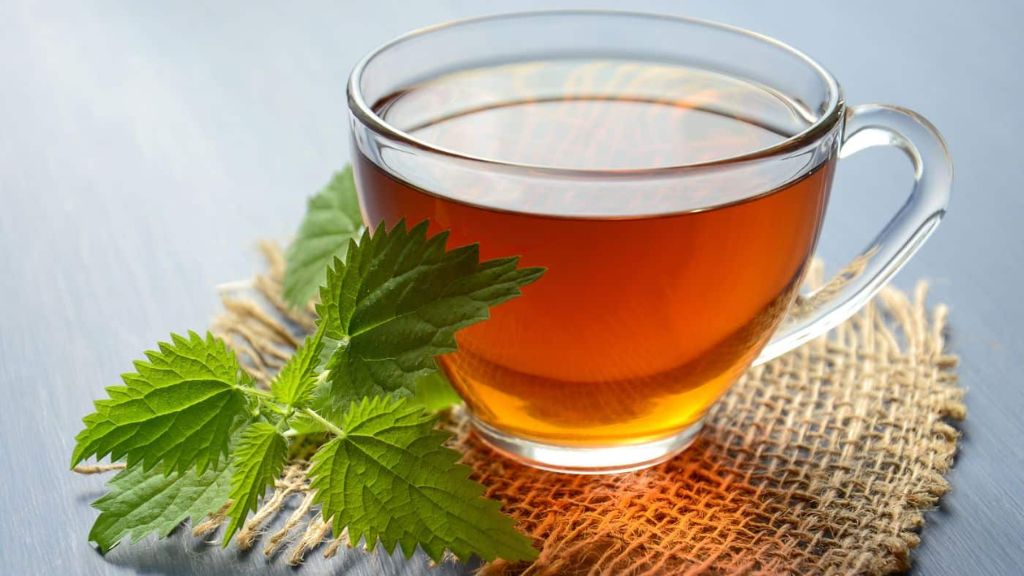
Teas for soothing a sore throat, It may be helpful to soothe a sore or irritated throat when fighting a cold. Learn from a registered dietitian and medical doctor how to soothe it with kitchen staples such as tea. If you’re suffering from a sore neck, a hot cup of tea is the best remedy. In Eastern medicine, tea has been used to promote health and heal illness for centuries. We don’t recommend that you throw out your antibiotics prescribed for the strep your child brought home. However, we want to share with you the latest research on tea and its possible benefits to treat a sore neck. Learn what nutrition and health experts say about the best teas for soothing a sore neck.
Why Drink Tea If You Have a Sore Throat?
Hydration is the biggest reason to drink tea when you have a sore throat. When you are constantly able to keep moisture in your mucous membranes, it can help lessen the pain. Tea is brewed using water and it’s an easy way to drink more fluids when you are feeling under the weather. This is because you lose water through sneezing or coughing as well as from sinus congestion, postnasal drainage, and sinus congestion. Hydration will help to improve symptoms from a viral infection or hay fever but it won’t reduce the duration of the illness by more than 24 hrs.

A warm cup of tea is always a welcome toddy for a sore throat. The warmth helps soothe the throat, while numerous teas have ingredients to help fight inflammation and fight infection. Also have scrambled egg with tea.
The 5 Best Teas for a Sore Throat
1. Chamomile Tea

It sounds nice. In addition, a study published in Medical Report suggests that chamomile has medicinal properties due to its phytonutrients. These may ease the pain of a sore throat. Tea not only helps lubricate the throat but also has anti-inflammatory qualities which may help reduce swelling and help repair tissue. This herbal tea has no caffeine, so you can drink it at any time.
2. Elderberry Tea

Elderberry, or black elder, is also known as Sambucus noir. It’s a popular European herb for treating colds and their symptoms, such as sore throats. Researchers studied the effects of elderberry on COVID-19 patients during the COVID-19 Pandemic. The results of the study were published in 2020 by the Advanced Integrative Medicine Journal. They suggest that adults who took elderberry within 48 hours after onset experienced a decrease in flu-like symptoms.
In a 2021 study, published in Advanced Traditional Medicine, researchers looked at elderberry or black elder and found that it helped reduce the symptoms of the common cold such as pain, fever, congestion, and cough. Elderflower is a subject of limited research, but sales of elderberry syrups or gummies have soared since these findings.
You can reap these benefits by purchasing elderberry tea from your local natural foods store or grocer. Sip on a cup while you relax and rest.
3. Green Tea

Green tea has anti-inflammatory and antioxidant properties. Green tea contains caffeine so if you are sensitive to caffeine or want to sleep, you may not want to drink it all day. An Anesthesiology & Pain Medicine study from 2016 found that patients who underwent an endotracheal tube intubation, and gargled a green-tea solution postoperatively, experienced a reduction in their pain. More research is needed to determine the best dosage and treatment for the common cold. However, this simple and effective remedy for a sore neck shows promise.
Over-steeping your green tea can make it bitter. She recommends steeping the green tea pouch or bag in boiling water for three minutes to get a bright, flavorful cup every time.
4. Licorice Root

It may not be your favorite flavor, but research shows that licorice root tea can help soothe sore throats. An excerpt from the British Medical Journal published in 2003 suggested that licorice was considered as a soothing agent along with other herbs to ease the pain associated a sore neck for up to thirty minutes. However, it required frequent intake to help the pain subside.
A study published in , Biomedicines in 2019 found that licorice tea had antibacterial properties which helped to ease the pain of a sore neck. Researchers note that more studies are required to confirm the findings. However, this is a positive step in supporting the use of complementary medicine to help people with their pain.
5. Peppermint Tea

Think again if you think that this flavor of tea can only be found in the candy-cane-lined holiday boxes. Peppermint’s medicinal properties have been studied for many years, due to its antioxidant, antimicrobial and antiviral properties. An article published in Plant Therapy Science in 2006 showed that although the studies on humans were limited, the antimicrobial and antioxidant benefits of peppermint tea are promising. Further research is needed.
The National Center for Complementary and Integrative Health of the National Institutes of Health suggests that peppermint is safe and may even have some health benefits. A 2021 review published in Molecules examined all the benefits of the mint species Mentha. Researchers found similar findings to those of 2006: mint has a strong ability to reduce inflammation and infection due to microbial load in the body, but clinical trials and human research are lacking (or nonexistent). We hope that as science advances, more studies will be conducted on this herb. For now, if the peppermint extract soothes your throat, you can enjoy a cup or two of peppermint.
Choose a Trusted Brand
Every tea bag is not the same. Many teas and products that contain these ingredients , are not regulated. They are also not required to undergo product testing before they hit the shelves. Brands that have not been tested by a third party may contain contaminants or ingredients that aren’t clearly disclosed on the label. Look for products that have been certified by third-party testing to ensure the accuracy of the label. Also, always consult your health care team prior to trying something new.
When to See a Health Care Provider
According to the Centers for Disease Control and Prevention it is important to consult a doctor if you experience any of these symptoms:
- Difficulty swallowing or breathing
- Blood in your saliva
- Excessive drooling (in young children)
- Joint swelling or pain
- Rash
- Dehydration
- High fever (that doesn’t subside after medication)
This list is not exhaustive. If you have any concerns or feel that your symptoms are getting worse, it is important to seek medical attention.
The Bottom Line
Doctors and registered dieteticians agree that tea is a good way to soothe a sore or scratchy throat. Tea is a great addition to your diet when you are recovering from a cold. It can help hydrate and reduce inflammation. Although there are few risks to adding tea to your diet, it is recommended that you seek medical attention if symptoms worsen or if you try anything new.
FAQs
Q. What is the best drink for a sore throat?
A: While you are feeling under the weather, adding soothing hot beverages to your diet is a great idea. While bone broths may provide additional protein, since you might not have much appetite, Herbs and spices can also provide anti-inflammatory compounds for your sore throat. The bottom line is that you should stay hydrated, whether through tea, broth, or plain water.
Q. Can tea stop a sore throat?
A: Tea can hydrate a person with a sore neck, but it will not cure the soreness. There is no regulation on the amount of anti inflammatory compounds in each tea bag. While it may not hurt, it will not necessarily be the cure all patients hope for.
Q. How do I get rid of a sore throat quickly?
A: Doctors and registered dieteticians agree that tea is a good way to soothe a sore or scratchy throat. Tea is a great addition to your diet when you are recovering from a cold. It can help hydrate and reduce inflammation. Although there are few risks to adding tea to your diet, it is recommended that you seek medical attention if symptoms worsen or if you try anything new.




Hi there,
My name is Mike from Monkey Digital,
Allow me to present to you a lifetime revenue opportunity of 35%
That’s right, you can earn 35% of every order made by your affiliate for life.
Simply register with us, generate your affiliate links, and incorporate them on your website, and you are done. It takes only 5 minutes to set up everything, and the payouts are sent each month.
Click here to enroll with us today:
https://www.monkeydigital.org/affiliate-dashboard/
Think about it,
Every website owner requires the use of search engine optimization (SEO) for their website. This endeavor holds significant potential for both parties involved.
Thanks and regards
Mike Jenkin
Monkey Digital
Hi there
I have just checked heavenoffoods.com for the ranking keywords and saw that your website could use a boost.
We will increase your ranks organically and safely, using only state of the art AI and whitehat methods, while providing monthly reports and outstanding support.
More info:
https://www.digital-x-press.com/unbeatable-seo/
Regards
Mike Nyman
Digital X SEO Experts
hudson valley bank manager murder for hire
Hello
I wish to have a private business discussion with you that involves millions and this would be of a great benefit to both parties if handled well.
Kindly get back to me with your phone number for more details.
Thanks,
Williams Delar
Wdelar@w-private.com
Как избежать повторного появления бородавок?
Вульгарная бородавка plastica.onclinic.ru .
Профессионалы сделают ваш авто идеальным, конкурентные цены
Полировка автомобиля прайс http://www.polish-avto.ru/ .
Как сделать мягкую мебель чистой и свежей с помощью сухой химчистки
Cухая химчистка мягкой мебели на дому http://www.suhaya-himchistka-mebely.ru .
Грамотно обратившись к специалистам
Установка шумоизоляции на автомобиль цена https://shumoizolyaciya-a.ru .
Hey people!!!!!
Good mood and good luck to everyone!!!!!
1win казино — популярная платформа для онлайн азартных игр. Оно предлагает широкий выбор слотов, настольных игр и ставок на спорт в удобном интерфейсе. Бонусы для новых игроков и регулярные акции делают игру выгодной и увлекательной. 1вин официальный сайт зеркало на сегодня для обхода блокировок и доступа к основному сайту в текущий день. Стабильная работа сайта и быстрые выплаты делают 1win привлекательным выбором для любителей азарта.
I don’t think the title of your article matches the content lol. Just kidding, mainly because I had some doubts after reading the article.
Нужна отделка дома в Москве и области? Наша бригада из опытных строителей из Белоруссии готова воплотить ваши идеи в реальность! Современные технологии, индивидуальный подход, и качество – это наши гарантии. Посетите наш сайт отделка домов и начните строительство вашего уюта прямо сейчас! #БелорусскаяБригада #Отделка #Ремонт #Достройка
Can you be more specific about the content of your article? After reading it, I still have some doubts. Hope you can help me.
Thanks for sharing. I read many of your blog posts, cool, your blog is very good.
Нужна строительная бригада в Москве и области? Наша бригада из опытных строителей из Белоруссии готова воплотить ваши идеи в реальность! Современные технологии, индивидуальный подход, и качество – это наши гарантии. Посетите наш сайт строительная бригада и начните строительство вашего уюта прямо сейчас! #БелорусскаяБригада #Отделка #Ремонт #Достройка
Can you be more specific about the content of your article? After reading it, I still have some doubts. Hope you can help me.
Нужна шлифовка сруба дома вашей мечты? Наша бригада из опытных строителей из Белоруссии готова воплотить ваши идеи в реальность! Современные технологии, индивидуальный подход, и качество – это наши гарантии. Посетите наш сайт шлифовка сруба дома и начните строительство вашего уюта прямо сейчас! #БелорусскаяБригада #Шлифовка
Your article helped me a lot, is there any more related content? Thanks!
быстро и качественно.
Лучшие решения для вашей сантехники в Сан-Хосе.
Надежные сантехники в Сан-Хосе.
на любое время суток.
Выгодные предложения сантехников в Сан-Хосе.
Лучшие сантехники для дома в Сан-Хосе.
Экстренный вызов сантехника в Сан-Хосе.
Профессиональные сантехники в Сан-Хосе.
Помощь сантехника в Сан-Хосе.
Бюджетные решения для вашей сантехники в Сан-Хосе.
plumbing supply san jose ca https://www.plumbersan-joseca4.com .
Нужен интим досуг? На нашем сайте самые лучшие проститутки и индивидуалки Тюмени с влажными киськами! Они ждут звонка от состоятельного мужчины, который хочет секса и интим досуга! #проститутки #Шлюхи #Индивидуалки
Thank you for your sharing. I am worried that I lack creative ideas. It is your article that makes me full of hope. Thank you. But, I have a question, can you help me?
Нужен интим досуг? На нашем сайте самые лучшие проститутки и индивидуалки Тюмени с влажными киськами! Они ждут звонка от состоятельного мужчины, который хочет секса и интим досуга! #проститутки #Шлюхи #Индивидуалки
Can you be more specific about the content of your article? After reading it, I still have some doubts. Hope you can help me.
Нужен интим досуг? На нашем сайте самые лучшие шлюхи Тюмени с влажными киськами! Они ждут звонка от состоятельного мужчины, который хочет секса и интим досуга! #Проститутки #Шлюхи #Индивидуалки
Hey! I understand this is kind of off-topic but I needed to ask.
Does running a well-established website like yours take a
large amount of work? I’m brand new to operating a blog but I do write in my
journal everyday. I’d like to start a blog so I will be able
to share my personal experience and thoughts online.
Please let me know if you have any kind
of suggestions or tips for brand new aspiring bloggers.
Thankyou!
Your article helped me a lot, is there any more related content? Thanks!
Новейшие технологии от Shining 3D, для революционного применения в медицине и дизайне.
3D-сканирование от Shining 3D – новая эра в медицине.
Создание реалистичных моделей с помощью 3D-принтеров от Shining 3D.
Технологии будущего уже здесь – Shining 3D.
Где купить продукцию Shining 3D в России.
3D-сканирование: новые возможности благодаря Shining 3D.
Взгляд в будущее: 3D-печать от Shining 3D.
Как Shining 3D изменит принципы дизайна и архитектуры.
Shining 3D: интегрированные решения для промышленности и медицины.
Shining 3D: технологии будущего уже здесь.
einscan https://www.6hinin-tr.ru/ .
Продвинутые технологии в промышленных 3D-сканерах
3д принтер промышленный купить https://www.myshlennye-3d-ska4.ru .
Инновационные решения: лазерные 3D сканеры в медицине
3d лазерный сканер http://www.lazernyert4.ru .
Как выбрать профессиональный 3D сканер для работы
профессиональный 3d сканер https://profes-3d-skan.ru/ .
I appreciate the clear and concise information.
Your insights are very valuable.
I don’t think the title of your article matches the content lol. Just kidding, mainly because I had some doubts after reading the article.
This is such a valuable resource. I’ve learned so much from this post, and I appreciate the practical advice you’ve shared.
Thanks for the detailed guide.
Ручные 3D сканеры: инновации для прогрессивных профессионалов
ручной 3д сканер https://chnye-3d-skan.ru .
Thank you for this informative and engaging article. The examples you’ve provided make it much easier to understand the concepts you’re discussing.
I appreciate how you broke down this complex topic into manageable pieces. Your clear explanations and real-life examples made it so much easier to understand.
Thank you for this informative and engaging article. The examples you’ve provided make it much easier to understand the concepts you’re discussing.
I love the detailed explanations.
I really appreciate the depth of information you’ve provided here. It’s clear that you’ve put a lot of thought and effort into this post.
This was exactly what I was looking for.
Thanks for sharing. I read many of your blog posts, cool, your blog is very good. https://www.binance.com/bn/register?ref=UM6SMJM3
Thank you a bunch for sharing this with all of us you really realize what you’re talking approximately! Bookmarked. Please also seek advice from my web site =). We will have a link trade arrangement among us!
Your point of view caught my eye and was very interesting. Thanks. I have a question for you.
радиаторы отопления вертикальные высокие трубчатые http://www.vertikalnyeradiatory.ru.
Your point of view caught my eye and was very interesting. Thanks. I have a question for you.
Your article helped me a lot, is there any more related content? Thanks!
Thank you for your sharing. I am worried that I lack creative ideas. It is your article that makes me full of hope. Thank you. But, I have a question, can you help me?
Bwer Company is a top supplier of weighbridge truck scales in Iraq, providing a complete range of solutions for accurate vehicle load measurement. Their services cover every aspect of truck scales, from truck scale installation and maintenance to calibration and repair. Bwer Company offers commercial truck scales, industrial truck scales, and axle weighbridge systems, tailored to meet the demands of heavy-duty applications. Bwer Company’s electronic truck scales and digital truck scales incorporate advanced technology, ensuring precise and reliable measurements. Their heavy-duty truck scales are engineered for rugged environments, making them suitable for industries such as logistics, agriculture, and construction. Whether you’re looking for truck scales for sale, rental, or lease, Bwer Company provides flexible options to match your needs, including truck scale parts, accessories, and software for enhanced performance. As trusted truck scale manufacturers, Bwer Company offers certified truck scale calibration services, ensuring compliance with industry standards. Their services include truck scale inspection, certification, and repair services, supporting the long-term reliability of your truck scale systems. With a team of experts, Bwer Company ensures seamless truck scale installation and maintenance, keeping your operations running smoothly. For more information on truck scale prices, installation costs, or to learn about their range of weighbridge truck scales and other products, visit Bwer Company’s website at bwerpipes.com.
Thank you for your sharing. I am worried that I lack creative ideas. It is your article that makes me full of hope. Thank you. But, I have a question, can you help me? https://accounts.binance.com/lv/register-person?ref=B4EPR6J0
Thank you for your sharing. I am worried that I lack creative ideas. It is your article that makes me full of hope. Thank you. But, I have a question, can you help me? https://accounts.binance.com/ur/register-person?ref=WTOZ531Y
Can you be more specific about the content of your article? After reading it, I still have some doubts. Hope you can help me.
I don’t think the title of your article matches the content lol. Just kidding, mainly because I had some doubts after reading the article.
Thanks for sharing. I read many of your blog posts, cool, your blog is very good. https://accounts.binance.com/si-LK/register-person?ref=V2H9AFPY
Thanks for sharing. I read many of your blog posts, cool, your blog is very good.
Thank you for your sharing. I am worried that I lack creative ideas. It is your article that makes me full of hope. Thank you. But, I have a question, can you help me?
Thanks for sharing. I read many of your blog posts, cool, your blog is very good.
I don’t think the title of your article matches the content lol. Just kidding, mainly because I had some doubts after reading the article.
Thank you for your sharing. I am worried that I lack creative ideas. It is your article that makes me full of hope. Thank you. But, I have a question, can you help me?
Thank you for your sharing. I am worried that I lack creative ideas. It is your article that makes me full of hope. Thank you. But, I have a question, can you help me?
Thank you for your sharing. I am worried that I lack creative ideas. It is your article that makes me full of hope. Thank you. But, I have a question, can you help me?
Your point of view caught my eye and was very interesting. Thanks. I have a question for you.
Your point of view caught my eye and was very interesting. Thanks. I have a question for you.
Thanks for sharing. I read many of your blog posts, cool, your blog is very good.
I don’t think the title of your article matches the content lol. Just kidding, mainly because I had some doubts after reading the article.
شركة Bwer هي أحد الموردين الرئيسيين لموازين الشاحنات ذات الجسور في العراق، حيث تقدم مجموعة كاملة من الحلول لقياس حمولة المركبات بدقة. وتغطي خدماتها كل جانب من جوانب موازين الشاحنات، من تركيب وصيانة موازين الشاحنات إلى المعايرة والإصلاح. تقدم شركة Bwer موازين شاحنات تجارية وموازين شاحنات صناعية وأنظمة موازين جسور محورية، مصممة لتلبية متطلبات التطبيقات الثقيلة. تتضمن موازين الشاحنات الإلكترونية وموازين الشاحنات الرقمية من شركة Bwer تقنية متقدمة، مما يضمن قياسات دقيقة وموثوقة. تم تصميم موازين الشاحنات الثقيلة الخاصة بهم للبيئات الوعرة، مما يجعلها مناسبة للصناعات مثل الخدمات اللوجستية والزراعة والبناء. سواء كنت تبحث عن موازين شاحنات للبيع أو الإيجار أو التأجير، توفر شركة Bwer خيارات مرنة لتناسب احتياجاتك، بما في ذلك أجزاء موازين الشاحنات والملحقات والبرامج لتحسين الأداء. بصفتها شركة مصنعة موثوقة لموازين الشاحنات، تقدم شركة Bwer خدمات معايرة موازين الشاحنات المعتمدة، مما يضمن الامتثال لمعايير الصناعة. تشمل خدماتها فحص موازين الشاحنات والشهادات وخدمات الإصلاح، مما يدعم موثوقية أنظمة موازين الشاحنات الخاصة بك على المدى الطويل. بفضل فريق من الخبراء، تضمن شركة Bwer تركيب وصيانة موازين الشاحنات بسلاسة، مما يحافظ على سير عملياتك بسلاسة. لمزيد من المعلومات حول أسعار موازين الشاحنات، وتكاليف التركيب، أو لمعرفة المزيد عن مجموعة موازين الشاحنات ذات الجسور وغيرها من المنتجات، تفضل بزيارة موقع شركة Bwer على الإنترنت على bwerpipes.com
Choose BWER for trusted weighbridge systems in Iraq, offering customized solutions to optimize your industrial operations and ensure precise weight measurement every time.
At BWER Company, we specialize in weighbridge solutions tailored to Iraq’s diverse industries, ensuring accurate weight management, efficient operations, and compliance with international quality standards.
Your article helped me a lot, is there any more related content? Thanks!
Your article helped me a lot, is there any more related content? Thanks!
Your article helped me a lot, is there any more related content? Thanks!
Thank you for your sharing. I am worried that I lack creative ideas. It is your article that makes me full of hope. Thank you. But, I have a question, can you help me?
Your point of view caught my eye and was very interesting. Thanks. I have a question for you.
Пополнение и вывод средств Депозит Чтобы сделать депозит на сайте, необходимо нажать кнопку «Пополнить» в боковом вертикальном меню. Система направит игрока в профиль, где можно ознакомиться со всеми возможными способами пополнения счёта: банковские карты VISA/MasterCard (от 1 до 5000 $), криптовалюты (от 5 до 5000 $): Bitcoin (минимум — 0,0001 BTC), Litecoin (минимум — 0,01 LTC), Dogecoin (минимум — 1 DOGE) и др., электронные платёжные системы: WebMoney (от 1 до 5000 $), Neteller (от 1 до 10 000 $), Muchbetter (от 1 до 1000 $), Perfect Money (от 5 до 5000 $), Monetix Wallet (от 7 до 200 $), Jeton GO (от 1 до 1000 $), Jeton Wallet (от 1 до 1000 $). Вывод средств Для того чтобы игроку стали доступны все методы вывода средств со счёта, необходимо пройти полную идентификацию. Вывести деньги со счёта в казино «БетБум» можно с помощью: банковских карт VISA/Mastercard, платёжных систем Neteller, WebMoney, Muchbetter, Perfect Money, Monetix Wallet и Jeton GO. Минимумы и максимумы для каждого способа вывода отличаются. Узнать информацию о каждом из способов можно только игрокам, прошедшим процедуру идентификации. го4вин: обзор официального сайта онлайн казино – https://nasvsehtoshnit.ru/
Внесение депозита и вывод средств Операции пополнения счета доступны сразу после активации учетной записи. Для заказа выплаты необходимо пройти верификацию. Подтвердить личность можно, отправив администрации скан-копии личных документов. Вывод средств
Витрина промо кодов Так как Казино стремится заинтересовать своих клиентов для заключения пари, она постоянно разрабатывается различные предложения. Они направлены не только на новых игроков. Есть масса акций, рассчитанных на активных клиентов. Одним из таких предложений является Витрина, где можно приобрести наиболее интересный купон. Список промокодов Go4win, доступных в Витрине, предлагается разделить на следующие категории: Кибер. В Казино много спортивных дисциплин, которые представлены виртуально. Например, кибер футбол или кибер баскетбол. Такой купон дает право сделать ставку на выбранную дисциплину. Пари должно включать в себя исход с котировкой от 1.8 и выше, Игры. На ресурсе можно не только заключать пари на спорт, но и играть в игры. Данная категория позволяет приобрести возможность поучаствовать в одном из большого списка развлечений, Спорт. Категория предлагает купить купон для определенной спортивной дисциплины. Условием фрибета станет ставка на тот вид спорта, для которого приобретен промо код 1 x Bet, а также коэффициент исхода от 1.8 и выше, Ставки. Если клиенты не хотят ограничивать себя определенной спортивной дисциплиной, то можно приобрести купон на обычную ставку. На выбор предоставляется ординар, экспресс, ТОТО и бетконструктор. Как только клиент накопит необходимое число промо баллов, он сможет обменять их на промокоды для Go4win. Купоны отличаются по числу требуемых очков. Некоторые из них стоят 50 баллов, а другие уже 100. Заработать можно баллы за ставки в 1xRace и другие активности в Казино. Приобретенный код будет прислан сообщением, которое отображается над личным кабинетом. Также оно может быть продублировано в сообщении на зарегистрированный номер. Использовать промокод на Go4win потребуется в купоне ставки. Для этого там отведено специальное поле. Стоит отметить, что перед данным действием должна быть убрана галка с режима ставки в один клик.
Your article helped me a lot, is there any more related content? Thanks!
I don’t think the title of your article matches the content lol. Just kidding, mainly because I had some doubts after reading the article.
Your point of view caught my eye and was very interesting. Thanks. I have a question for you.
Thank you for your sharing. I am worried that I lack creative ideas. It is your article that makes me full of hope. Thank you. But, I have a question, can you help me? https://www.binance.com/pt-BR/join?ref=YY80CKRN
Reasons to choose an online school in Washington,
How online schools in Washington work,
Advice for excelling in online schools in Washington,
Contrasting different online schools in Washington,
Key features of online schools in Washington,
Financial aspects of online schools in Washington,
Identifying quality online schools in Washington,
Difficulties faced in online schools in Washington,
Resources for students in online schools in Washington,
Employment options for online school alumni in Washington,
Professional development opportunities at online schools in Washington,
Convenient class times at online schools in Washington,
Networking opportunities at online schools in Washington,
Focused areas of study at online schools in Washington,
Predictions for online schools in Washington,
Hardware and software needed for online schools in Washington,
Feedback from graduates of online schools in Washington,
The application process for online schools in Washington,
Advantages of online education for working professionals in Washington
Online Schools in Washington http://www.onlineschoolwa2.com .
You are my breathing in, I own few blogs and often run out from to post .
Find the perfect online school in Oklahoma, all in one place.
Find out why online schools in Oklahoma are gaining popularity.
Find the right online school for you in Oklahoma.
See what others have to say about online education in Oklahoma.
Online Schools in Oklahoma https://onlineschoolok8.com .
Thank you for your sharing. I am worried that I lack creative ideas. It is your article that makes me full of hope. Thank you. But, I have a question, can you help me? https://accounts.binance.com/si-LK/register?ref=V2H9AFPY
I don’t think the title of your article matches the content lol. Just kidding, mainly because I had some doubts after reading the article.
I don’t think the title of your article matches the content lol. Just kidding, mainly because I had some doubts after reading the article.
I don’t think the title of your article matches the content lol. Just kidding, mainly because I had some doubts after reading the article.
Your article helped me a lot, is there any more related content? Thanks! https://accounts.binance.com/uk-UA/register?ref=W0BCQMF1
Best Online Schools in Kentucky, Explore the Options, Top Accredited Online Schools in Kentucky, Start Your Journey Today, Unlock Your Potential, Deciding Your Path, Quality Education Without Breaking the Bank, Prepare for College, Best Online Elementary Schools in Kentucky, Exploring Virtual Learning in Kentucky, Behind the Scenes of Online Schools
Online Schools in Kentucky Online Schools in Kentucky .
Thanks for sharing. I read many of your blog posts, cool, your blog is very good.
Find the top online schools in Wisconsin, ranked and reviewed.
Register for a respected online school in Wisconsin, and start your educational journey today.
Take classes online from the convenience of your Wisconsin home, with flexible schedules and personalized support.
Enhance your career prospects with an online degree in Wisconsin, from recognized online institutions in Wisconsin.
Realize your educational aspirations with an online program in Wisconsin, customized to match your preferences and availability.
Connect with fellow students in virtual classrooms in Wisconsin, and establish a supportive community for your journey.
Utilize online tools and platforms for your classes in Wisconsin, to prosper in your remote studying and flourish in your cyber university.
Online Schools in Wisconsin http://onlineschoolwi6.com/ .
Your article helped me a lot, is there any more related content? Thanks!
Can you be more specific about the content of your article? After reading it, I still have some doubts. Hope you can help me.
Discover the top online schools in Missouri, with affordable tuition rates.
Take the first step towards your degree at an online school in Missouri, that fits your schedule and budget.
Considering online schools in Missouri for your next academic venture?, Check out our comprehensive list.
Earn your degree online in Missouri, with cutting-edge technology.
Why choose an online school in Missouri?, Discover the advantages today.
Join a supportive online community in Missouri, and expand your network.
Explore the online learning resources in Missouri, to enhance your studies.
Online Schools in Missouri https://www.onlineschoolmo6.com .